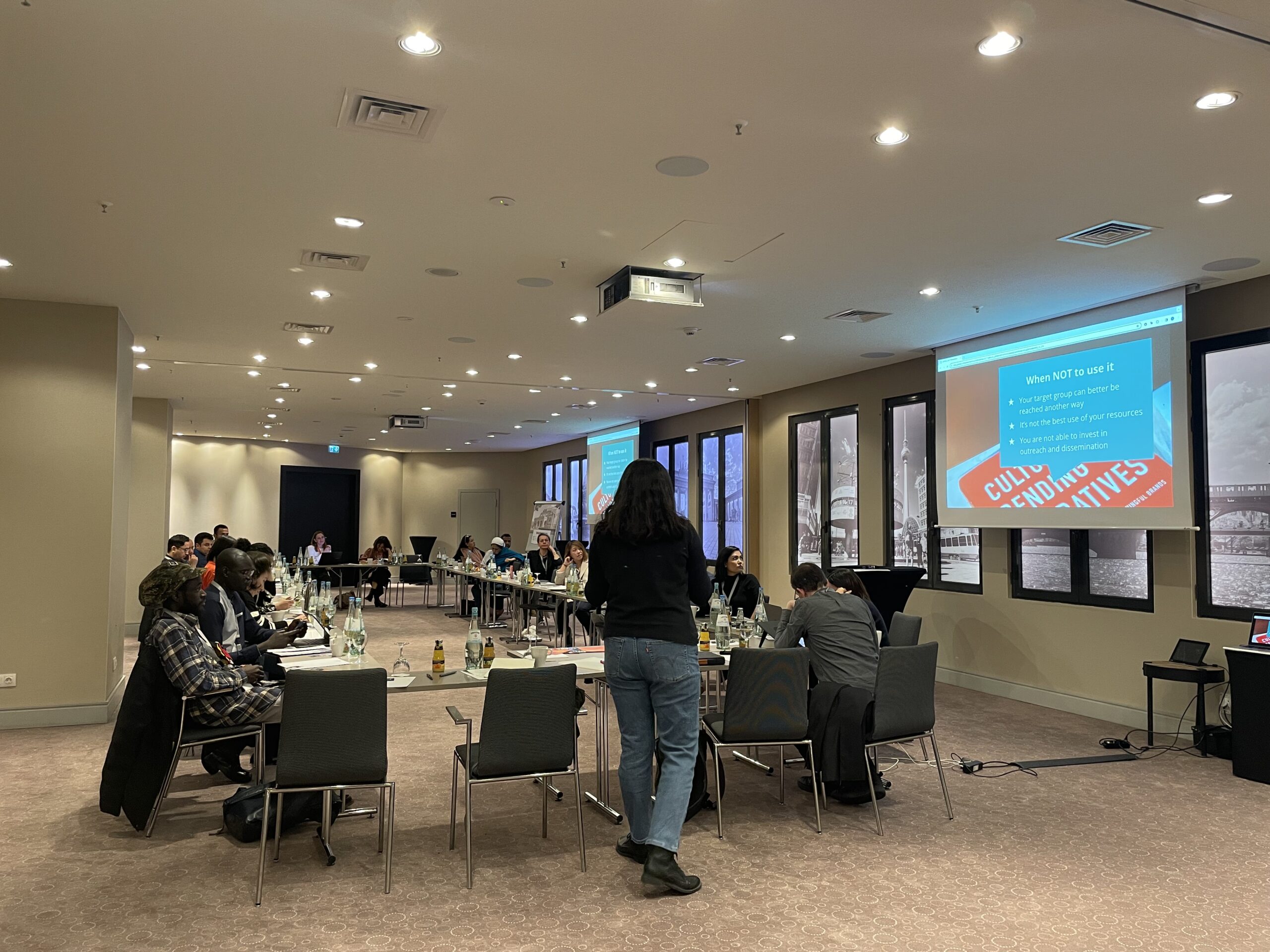By Saniya Patel
In February 2024, we conducted a media training aimed at amplifying the voices of forcibly displaced people in the media. This capacity-building workshop was part of a three-day event organized by the International Coalition of Sites of Conscience (ICSC), the only global network of historic sites, museums, archives, and memory initiatives that connect past struggles to today’s movements for human rights and social justice. The event focused on adopting an inclusive and community-centered approach to advocacy, providing opportunities for participants to chart unified pathways that elevate their communities’ voices and support truth, justice, and accountability.
The workshop brought together participants from 20 civil society organizations (CSOs) working on human rights, transitional justice, and forced displacement, with the goal of strengthening capacities and building new alliances. The diverse group included individuals from Afghanistan, Sudan, and Myanmar. The Migration Matters training aimed to share insights from our educational media work and support participants in developing new communication and advocacy tools.
We began the training with an activity to assess how participants felt about their current communications and advocacy efforts and the importance of these efforts to their overall goals. It became evident that despite their diverse causes, nearly all participants faced significant challenges with communications, a common issue for NGOs and nonprofits. To address this, the training aimed to equip participants with media-related tools to rethink their approaches, including experimenting with different formats, considering target audiences, and engaging in creative partnerships.
During the session, we shared lessons learned from our work at Migration Matters, highlighting the opportunities and challenges of digital storytelling. We screened a selection of our educational videos, prompting discussions on not just the content but also the communication methods, chosen formats, and potential target audiences. We then guided participants through a conceptual planning process to develop a tailored communication strategy. The workshop concluded with small group activities where participants created strategies for specific outputs, such as reports or artistic productions, to implement effective communication strategies in their own work.
A highlight of the workshop was a guest speaker session with VaGa_Bon, a migrant activist from Senegal living in Berlin, who was part of our Migrant Lives in Pandemic Times digital storytelling project. VaGa_Bon shared his experiences and insights on digital storytelling, emphasizing the role of the protagonist and the process of co-creation. His firsthand account highlighted the importance of building trust between producers and protagonists and considering the intent behind the media and how the protagonist’s story will be used.
If you’re interested in a media training by Migration Matters, get in touch with us here.
